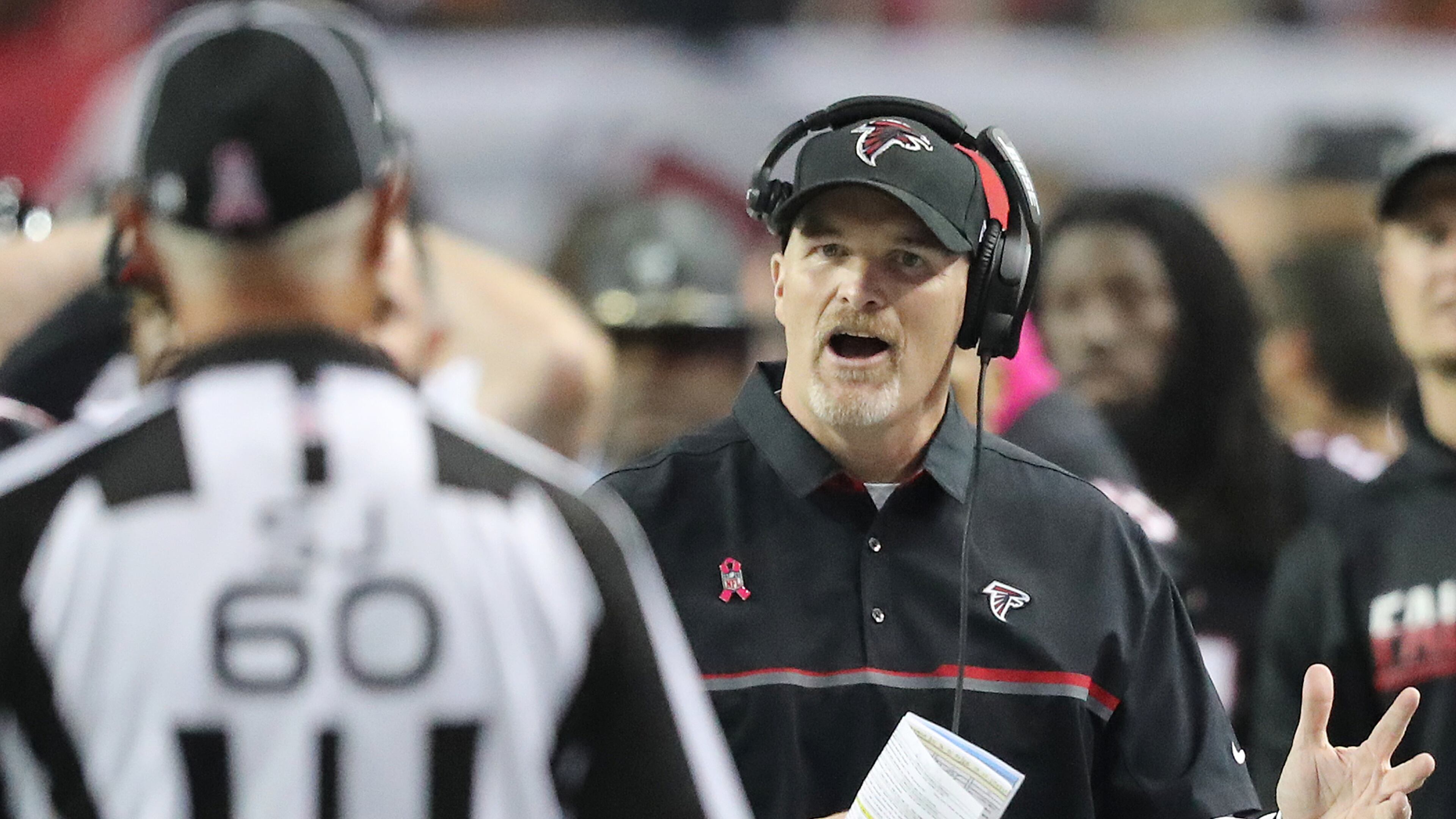Dear Ref, please keep a few flags in your pocket

Thursday’s Falcons-Bucs game contained a gracious plenty of exciting plays – and some of them even counted.
The 17 penalties called that night seemed like an intrusive number. And, indeed, it sounded as if Al Michaels was about one flag away from swallowing his tongue each time he announced another illegal formation call.
In fact, that number is about the average per game this season (16.7 thus far), meaning that the parade of penalties has now officially surpassed the Peyton Manning pizza commercial as the greatest threat to the flow and enjoyment of the televised professional product.
Somebody needs to start listening to Gerald Austin.
In speaking recently with the former long-time NFL ref for a story on all the angry noise directed at officials lately, we wandered into the topic of what bothers Austin most about the way NFL games are officiated now. Yes, it's too many calls.
Just try to remember, fellows, you don’t get paid by the penalty.
“I think they have a very good staff,” Austin said. “I think they need to review their approach to how the game should be officiated as for how technical you should be. Get back more to the managing of the game and get the calls that need to be made.”
An ESPN analyst and director of his eponymous officiating camps, Austin broke out an instructive analogy.
Think of the ref as a traffic cop. If you got pulled over for going 58 in a 55 mph zone, you’d be rightfully miffed. But, if you were going 68, maybe you believe you had it coming (unless, of course, you’re driving I-285).
“That’s the way we should be officiating the game – get the 68 mph calls,” Austin said.
“There are times when you should be technical (read that to be ticky-tack). When someone is trying to take advantage of the rules that they shouldn’t take advantage of, or there’s an attempt to deceive, then you apply the rule as it’s strictly written. The rest of the time manage the ballgame and get those calls that must be made.
“I think the officiating is getting away from that approach to the game.”
Can we say any of those calls Thursday night were technically wrong? At the same time, can we say that every one of them was really necessary? There’s the difficult line, making the calls that truly effect the play without becoming over-officious.
Listen up football officials to one of your own:
“The overall approach should be that players play the game; coaches coach the game; officials manage the game,” Austin said.
“Management is clock operation, developing a rhythm and maintaining the rhythm. Don’t look for calls to make but once there’s one there have the courage to make the call.”
Seems simple enough.

